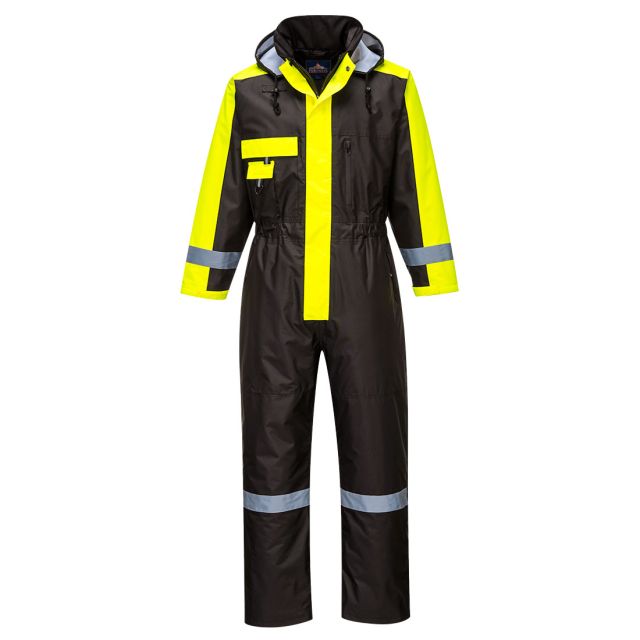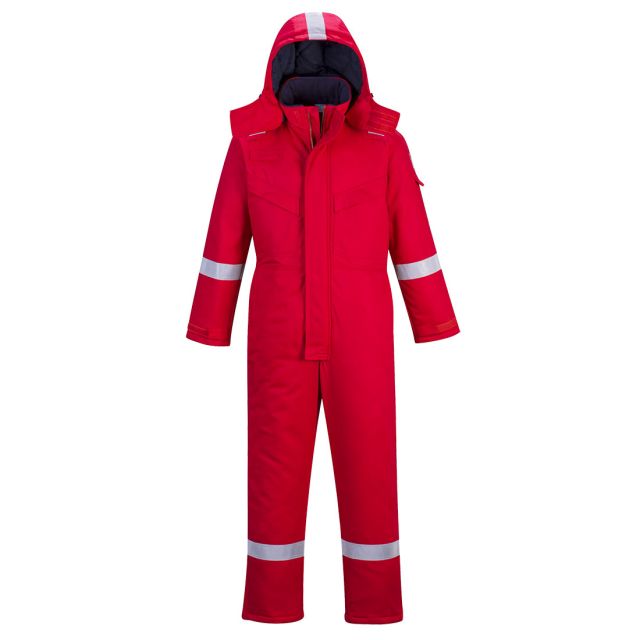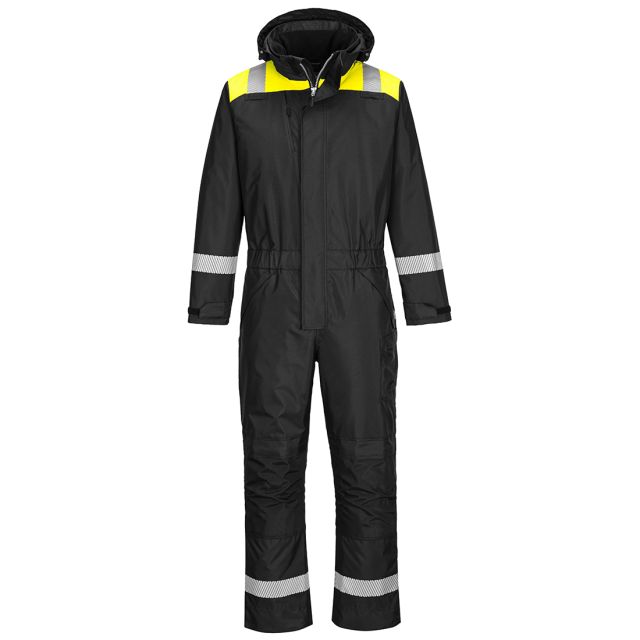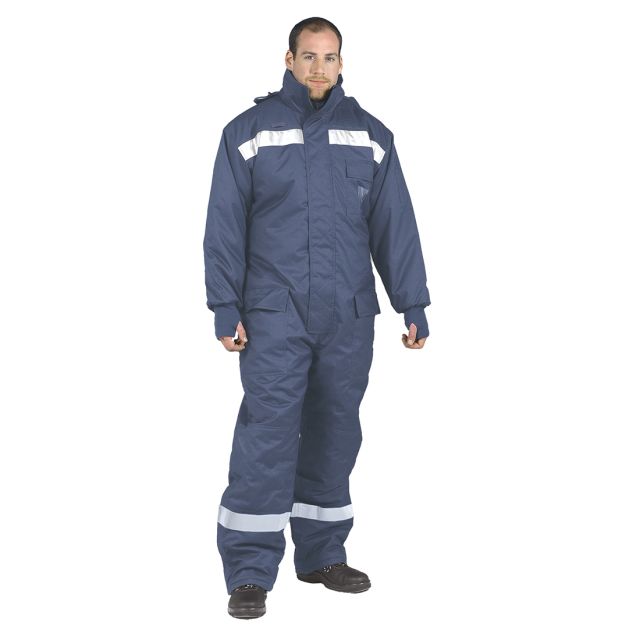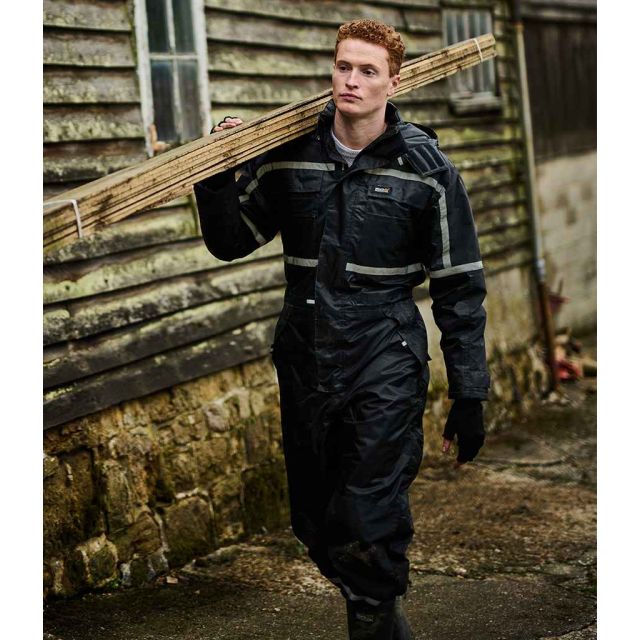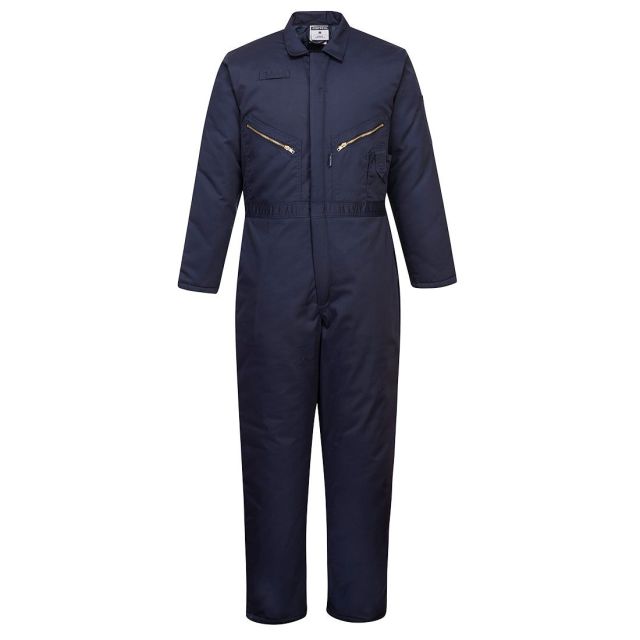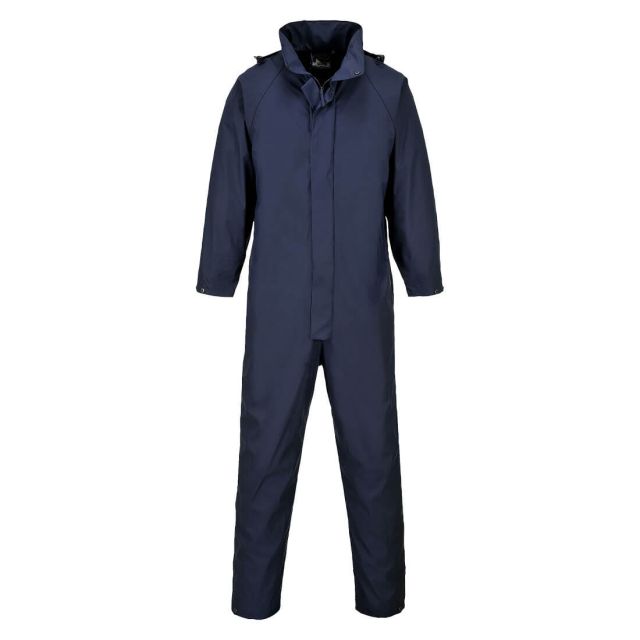Thermal Insulated Coveralls: Essential Protection for Cold Conditions
In the challenging and often horrible British winters, making sure your employees are sufficiently protected from the cold is more than simply an issue of comfort; it is also an essential safety factor. Thermal insulated coveralls are an effective choice for keeping workers warm and safe, especially in the face of harsh winds, rain, and snow.
This article outlines the many benefits of thermally insulated coveralls and their usefulness in various industrial contexts.
You can't control the weather but you can still take steps to help your staff avoid cold related illnesses such as a cold and flu, and even more serious conditions such as frostbite and cold stress. With these cold-related illnesses accounting for 34 million lost work days in 2016, a good step for you to take is to move away from the regular workwear and consider thermal insulated coveralls instead.
The Need for Thermal Insulated Coveralls
It is important to remember that even though coveralls with thermal insulation are beneficial to protect against cold hazards, that does not mean regular, everyday workwear should be forgotten about.
They are "Cover Alls" after all.
It is vital that you still source the safest and most comfortable workwear possible for your employees to ensure they remain as safe and as comfortable as possible when working - regardless of the industry you are in.
However, a big advantage of coveralls is that they are designed to be comfortably worn over uniforms and workwear, if the right size is chosen.
When faced with the potentially extreme conditions of a British winter, protecting your employees is essential. Cold-related health conditions account for a significant number of lost workdays each year, which highlights the importance of effective thermal protection in outdoor or unheated working environments.
Thermal coveralls provide an added layer of warmth that conventional workwear lacks, substantially reducing the risk of cold-related health problems.
Advantages Over Standard Workwear
While regular workwear forms the basic layer of protection for day-to-day work tasks, thermal coveralls offer additional benefits that make them indispensable during colder months:
- Enhanced Warmth: Thermal coveralls are specially lined with fabrics that retain heat, ensuring that employees stay warm even in sub-zero temperatures.
- Layering Capability: Designed to be worn over uniforms and other workwear, the right size of thermal coveralls adds warmth without restricting movement.
- Versatility: Beyond just providing warmth, these coveralls protect against typical workplace hazards such as oil, grease, and dirt, just like non-insulated coveralls.
As Well As, Not Instead Of
While regular workwear is a good first step, thermally insulated coveralls provide the additional warmth to your employees that allow them to comfortably continue working in cold conditions.
They add an extra layer of warmth and offer protection to your workforce who might be working in the rain and bitter winds or even in snowy conditions. In addition to this, these specific coveralls can come in a wide variety of fabric weights which are specially thermally lined to keep the wearer extra warm in colder temperatures.
Versatility and Industry Applications
Thermal insulated coveralls (and overalls) are not limited to just one type of job or industry. Their design caters to a broad range of sectors, providing not only thermal protection but also defense against various industrial hazards:
- Maintenance and Forestry: Offers durability and protection (even against chainsaws) against the elements while keeping workers warm.
- Engineering and Electricals: Safeguards against the cold while ensuring that workers are protected from industry-specific risks.
- Decorating and General Construction: Keeps workers warm and protected from environmental hazards like wind and rain.
Portwest, a leading brand in protective wear, offers options like the Orkney Coverall, which is designed for rugged use while being lined to insulate against the coldest conditions.
Insulation as well as...
Coveralls with thermal insulation are not just designed for dealing with cold conditions and keeping workers safe. Usually made from high quality and durable materials, they are designed to deal with several risks that you can find at the workplace. Any industry would find a pair versatile enough to cover each aspect of safety.
This speciality protective clothing can be used in almost any industry and is effective against oil, grease, dirt, other substances, just like any other coverall - as well as the cold conditions.
As there are well-known brands who specialise in coveralls and other similar garments, it's advantageous to implement this as part of your workers' uniform.
This is because they last longer than cheaper alternatives and they're also designed with specific industries in minds and with specific industries come their own set of unique hazards - with the cold temperatures being an important one, especially in winter.
Most thermal insulated coveralls offer rugged safety elements which protect against the coldest of conditions and still performs as a protective coverall in any industry.
This includes maintenance, forestry, electricals, engineering, decorating and other industries which have made thermal coveralls a part of their uniform to give added protection at work and against the harsh British weather.
Are They Worth Buying?
Cold temperatures can bring many dangers to you and your workers, so it makes sense to invest in thermal insulated coveralls to wear over usual workwear. The fact that they are durable, safe and keep you warm speaks volumes, as they are some of the vital features you would be searching for when sourcing for your workforce.
As they are durable, they can be used even in the harshest of conditions without continually needing to be replaced. Investing in high-quality thermal insulated coveralls is cost-effective in the long run. Their durability means they can withstand harsh conditions without frequent replacement, providing continuous protection and warmth.
Conclusion
As the cold weather imposes additional hazards, ensuring that your workforce is equipped with thermal insulated coveralls is crucial. They are not just an addition to regular workwear but a necessary upgrade during the winter months, providing essential protection that keeps employees safe and productive. Whether dealing with icy winds or freezing temperatures, thermal coveralls are an investment in workforce safety and well-being.







